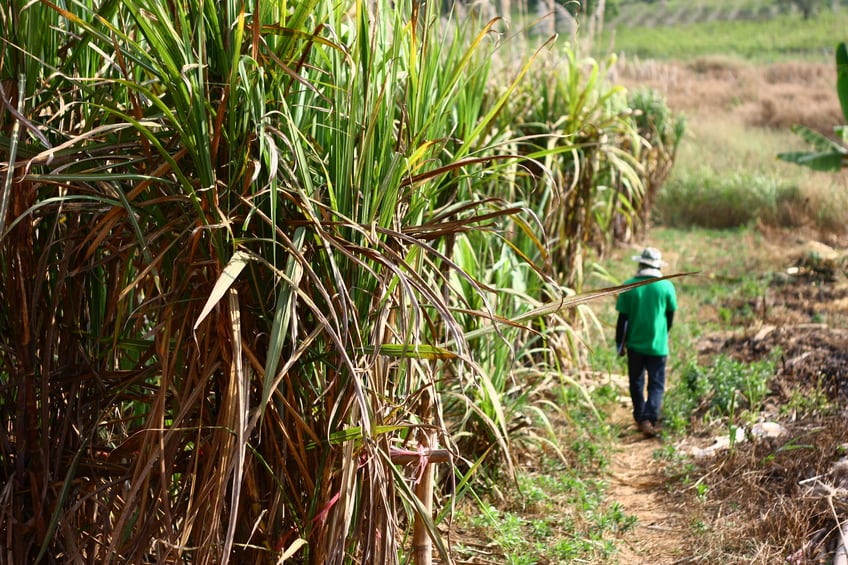Childhood obesity is one of the biggest public health challenges facing the UK.
According to findings from the 2018/2019 National Child Measurement Programme, more than one in five children aged 4-5 years is overweight or obese. By 10-11 years of age, statistics rise to more than one in three.
In an effort to combat obesity rates, the UK Government initiated a Childhood Obesity Plan in 2016, with new chapters published in 2018 and 2019. Embedded in these chapters are food and beverage reformulation targets, which aim to reduce the amount of sugar, salt, and calories in finished products.
Yet to date, such targets focus on reducing specific ‘unhealthy’ nutrients, rather than increasing the amount of ‘healthy’ nutrients. Could, and should, the Government broaden its approach and set ‘positive nutrition’ targets for industry?
Why ‘positive nutrition’?
According to Kate Halliwell, who heads up UK Diet and Policy at the Food and Drink Federation (FDF), a more ‘holistic’ approach to tackling health concerns should look beyond singular ingredients, such as sugar and salt.
The Government has been challenging food manufacturers to reduce salt levels for several years, with salt reduction targets published in 2006, 2009, 2011 and 2014.
Concerning sugar, manufacturers were set a voluntary target to cut sugar across a range of products that contribute most to children’s sugar intakes by at least 20% by 2020. And a Soft Drinks Industry Levy (SDIL) was imposed in 2018.
Yet at the Westminster Food & Nutrition Forum yesterday (11 May), the trade organisation – which represents food and non-alcoholic drink manufacturers operating in the UK – urged policymakers and legislators to broaden this scope.
Considering the UK’s existing targets, the diet and policy lead noted that “there is no mention of positive nutrition, or positive elements in the diet”.
This is at odds with findings from the Global Burden of Disease Study 2017, published in The Lancet last year, she suggested. The report tracked consumption of dietary factors on 195 countries between 1990 to 2017, concluding that one in five deaths are associated with poor diet.
“If you break these down for the UK, I think it’s interesting to note that the top [four] contributors [to mortality] are all positive factors,” Halliwell continued, citing low intake of whole grains, fruit, nuts and seeds, and vegetables.
“We don’t have any formal government policies that are trying to encourage the consumption of these products. There are certainly no policies [currently being discussed] with industry, in [a similar vein] to sugar and salt reduction in products.
“I think if we are looking at a holistic programme, then we should start to consider how we incorporate these elements in, as well as thinking about the elements we should be reducing.”
What could a ‘positive nutrition’ target look like?
While few positive nutrition targets exist in Europe, a strategy in Denmark has proved fruitful.
The Danish Whole Grain Partnership (WGP) was established in 2008 to create ‘target-oriented’ and effective activities to encourage Danes to eat more whole grains, and consequently improve public health.
Since that time, Denmark has seen whole grain intake rise significantly. According to the WGP, Danes now have an average intake of 63g of whole grain per day, and 30% of the Danish population now eats the recommended intake of 75g of whole grain per day.
Danes with the lowest whole grain intake have now doubled their intake compared to the previous average.
For FDF’s Halliwell, the WGP is a good example of multisectoral collaboration to achieve positive nutrition targets. “It is a partnership across industry, NGOs, and government,” she explained during the online conference. “They actually have a whole grain recommendation in Denmark. We don’t have that here [in the UK]. Our closest equivalent would be fibre, but they are not directly comparable.
“They [instigated] a big consumer campaign, there is a logo…and they’ve managed to double the intake…across all socio demographics.”
A comparable initiative in the UK could be The Food Foundation’s Peas Please programme. Peas Please brings together farmers, retailers, fat food and restaurant chains, caterers, processors and government departments to make it easier for everyone to consumer more vegetables.
The project aims to secure commitments from industry and Government to improve the availability, acceptability, affordability and quality of vegetables on offer in shops, schools, and fast food restaurants.
Government action required
At the conference, the general feeling was that Government can, and should, do more to combat childhood obesity.
Fran Bernhardt, for example, who coordinates UK charity Sustain’s Children’s Food Campaign, suggested that shifting industry to increase whole grain, fruit, and vegetable content through product reformulation, requires government guidance.
“We really need a clear line,” she told delegates. “When we have had conversations with [actors] across the sector, from health experts [to industry players], we have heard that we need a clear line for everyone to work towards.”
And prior to embarking on timely and expensive reformulation development, businesses want to ensure that such lines and targets will still be in place by the time the new product reaches shelves, Bernhardt continued.
“We need to be making sure that there are clear lines for all and that [policymakers] maintains that policy line. So, I would say we need the Government to step in there.”
This sentiment was reiterated by Professor Maggie Rae, President of the Faculty of Public Health in her concluding remarks.
“It is important to recognise that we’ve just not seen enough from Government on policies and I was particularly pleased to see the point made that there is really no formal government policy except for salt and sugar, [as well as] the points made about the need to…include other issues that make a healthy diet, and how we get more of those into our policy framework.”





